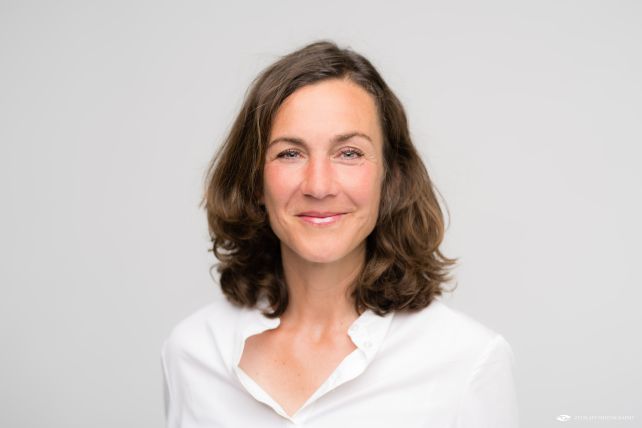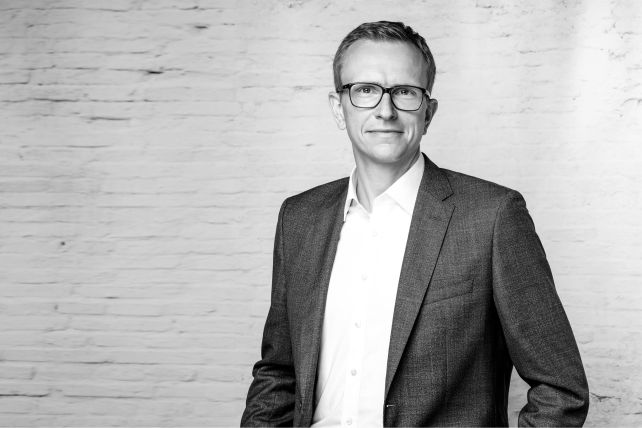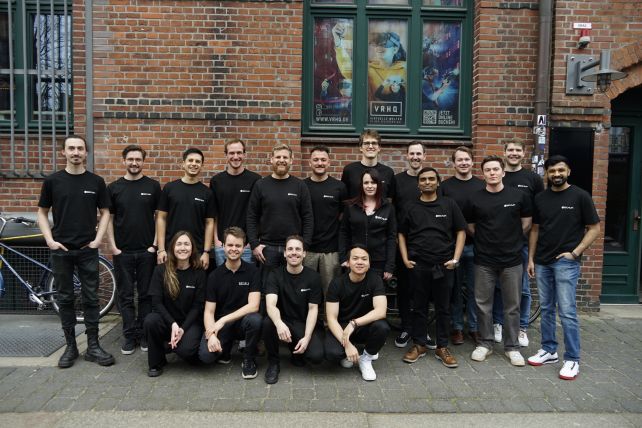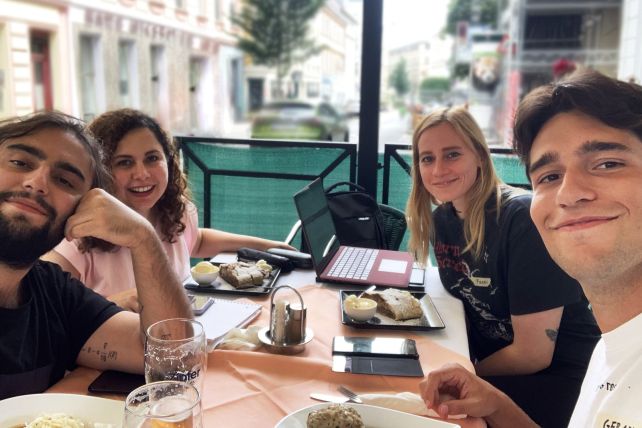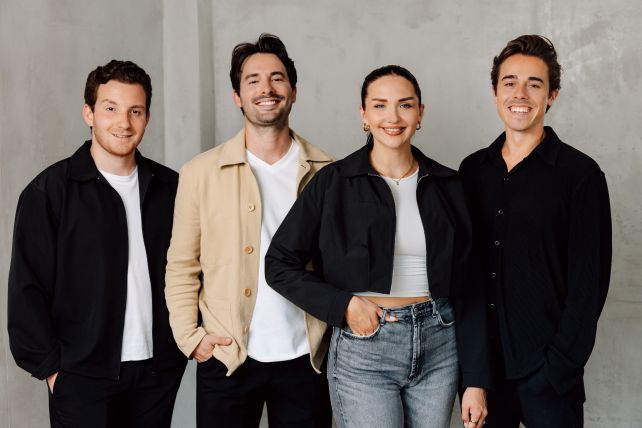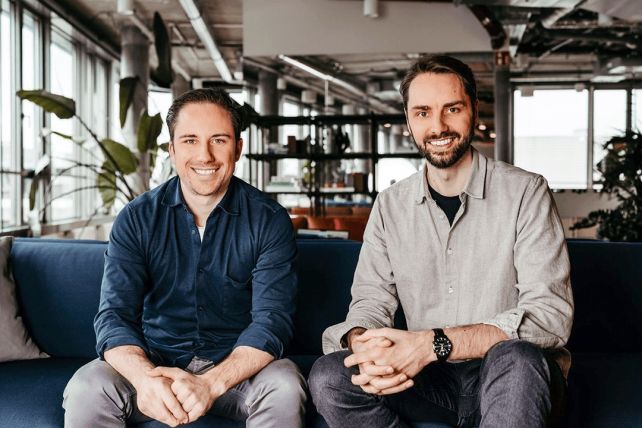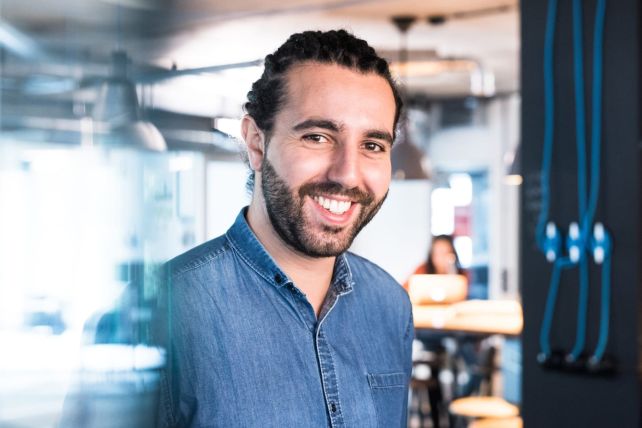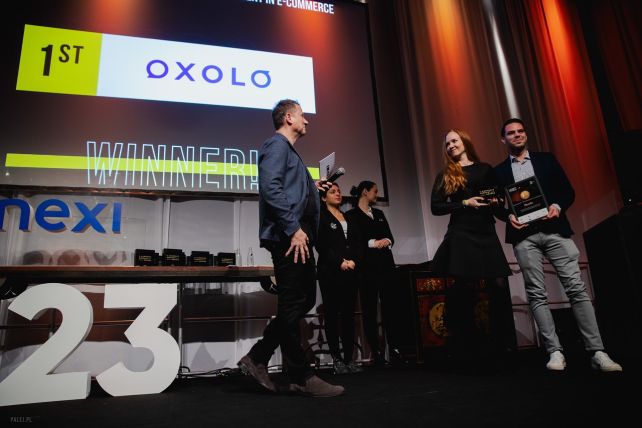Oxolo creates videos with AI
Promotional videos have always been an expensive pleasure, hardly affordable for small retailers and also extremely time-consuming. Thanks to artificial intelligence, this can now be done within minutes and even for free on trial. The Hamburg-based startup Oxolo generates moving images from text on its AI platform. Not only product presentations for e-commerce, but also videos for e-learning and e-health.

2023 was a successful year for Oxolo
Oxolo was founded in 2020 and has since gained half a million users worldwide, including well-known companies such as Deloitte and Rothschild. The rapid growth of the 50-strong team has already convinced numerous investors, enabling the founding duo Heiko Hubertz and Elisabeth L'Orange to raise 13 million euros in their Series A financing round in the fall of 2023. In addition to the VC firm DN Capital, business angels Christian Vollmann, Johannes Plehn, Thomas Hagemann, Stefan Wiskemann, Alex Täubert and Mischa Ruerup were also involved.
This was not the only highlight last year. At the FAZ Institute's Innovative Leaders Conference in Mainz in October, Oxolo won the AI Innovation Award for its outstanding achievements and innovations in the field of artificial intelligence. Back in March, the Hamburg-based AI startup was awarded the coveted prize in the Best Innovation / New Development in E-Commerce category at the E-Commerce Germany Awards 2023. And in the same month, the team around Hubertz and L'Orange succeeded at the d3con Innovation Award in Hamburg.


Oxolo lets avatars do the talking
Initially, the emphasis is on videos that are shot virtually using AI. One focus is on advertising clips for products offered on internet portals. In most cases, the retailers have placed photos of their products there and explained how they work in a text. "All users have to do is copy the URL of a product, select the language and platform and a video is created," explains L'Orange the process. The AI takes care of the usual and expensive work of scripting, studio filming and editing.
For the presentation Oxolo has created a broad portfolio of avatars that can act as speakers in the videos and advertise the product in 80 different languages. "The avatars are real actors who we have filmed several times and who are then adapted by AI so that they can say everything," explains the founder. Once the video is finished, users can still make changes afterwards. When the clip is online, the Oxolo AI also evaluates customer feedback and uses this data to optimise the video afterwards. Oxolo customers currently have a 33% higher conversion rate after using AI videos to advertise their products for three months, according to L'Orange.
Her startup offers its video service on the homepage with a subscription model. If you want to do more than just test the system once, the basic version costs 49.99 US dollars for a year. In the business class, the annual fee is 399.99 dollars. In addition, customised individual products are also offered. L'Orange puts the average price of a video at 10 euros. Compared to the costs usually incurred for the production of even a simple advertising video, the system seems groundbreaking.

The idea came from a trip to Texas
Heiko Hubertz brought the idea for AI-generated videos back from Austin, Texas, in 2019. He attended the SXSW festival there and saw a demonstration of generative AI models for the first time. "After analysing the industries in which generative AI will have the greatest impact, we came up with the idea of offering AI-generated videos for online retail," recalls co-founder L'Orange. "It is particularly difficult for smaller providers to create high-quality video content, but this greatly increases conversion in e-commerce."
As CCO at Oxolo, L'Orange has assumed responsibility for the non-tech areas and is primarily involved in the commercialisation of the product. She previously worked at VC Neuhaus Partners in Hamburg and as CFO at startup Flio and studied law.
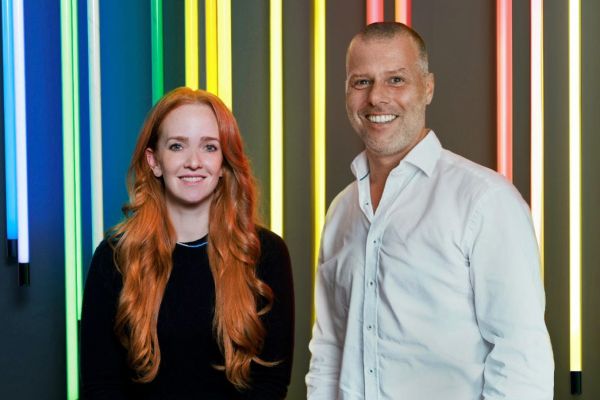
Co-founder Heiko Hubertz became famous with Bigpoint
Heiko Hubertz was already a successful figure in the startup scene long before the founding of Oxolo. Back in 2002, he founded the online games provider Bigpoint and conquered the then niche market of browser-based online games. Bigpoint quickly became big business and at times employed over 800 people. In 2011, the now 47-year-old business IT specialist sold his majority stake for 350 million dollars to the US investment companies TA Associates and Summit Partners. Hubertz was then active as a business angel for a while and founded the gaming company Whow Games, which operates social online casinos, in 2014. In 2021, the Dutch media company Azerion took over the Hamburg-based gaming provider.
With Oxolo, Hubertz is once again focusing on the latest trend: AI. It has been a constant topic on all channels for several years and fascinates the public. "ChatGPT has broken the ice for us," says L'Orange. She attributes the accelerated growth in the AI sector to the latest technological advances in graphics processing units (GPUs). "Over the last 40 years, artificial intelligence has developed linearly. Now, due to accelerated processor performance, AI is developing exponentially. The more powerful, the faster you can render. This is particularly relevant in the video sector."
In addition to speed, trust is increasingly important for overall success, especially when it comes to company data. All employees and servers are located in Germany, explains L'Orange. Their customers' data is secure. And with its address on Hamburg's Bleichenbrücke, Oxolo offers a solid location. Situated near the Binnenalster, it’s one of the most attractive in Hamburg: central, vibrant and with a high quality of leisure activities for after work. As a commercial and media city, Hamburg offers the AI startup an ideal environment and a creative network for further success. For CCO L'Orange, the Hanseatic city is exactly the right place:

Also have a look at our video portrait of Oxolo:
It used to be really tough for small e-commerce retailers to get their hands on the money they needed to make product videos. Then along came Oxolo.


